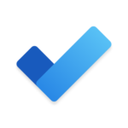Does your to-do list seem endless? Try one of these 12 software programs to organize your tasks
The to-do list is a simple and particularly effective tool for managing your to-do list. Organize, sort and prioritize your tasks... How can you make a good to-do list to put an end to procrastination, and finally cross your tasks off your list?
This article answers that question with top tips and a selection of to-do list apps to restore your peace of mind. Take the time to read this article, then cross that to-do off your list! 😉
To do list: 1 definition, 8 interests
"To do" means "to do" in English. A to-do list is therefore a list of things to do. By extension, the to-do list is associated with minimalist task management, designed to be simple to implement and effective in achieving expected results.
Making to-do lists has a number of benefits, such as :
- no more forgetting what needs to be done
- knowing where you stand in relation to your to-do list and day-to-day tasks;
- visibility of what needs to be done;
- efficient personal organization;
- keep track of what's been done so you can report on it;
- break down a job or project into smaller, more manageable tasks;
- organize yourself better as part of a team by allocating tasks;
- stop procrastinating.
In a professional context, it is above all collective productivity and serenity that are sought.
📌 Please note: it's very complicated to detail tasks without disrupting the readability of the file. Excel is suitable for small tasks, but quickly shows its limitations.
A selection of 12 task management programs to help you get to grips with your to-do list.
If a paper or digital Excel to-do list just won't do, we've got the right software to help you manage your tasks (and more!) collaboratively and on the move.
Top 12 to-do list software comparison chart
1 of 11
 monday.com |  Asana |  Beesbusy |  Canva |  Easynote |  Google Keep |  Microsoft To Do |  TickTick |  Todoist |  Trello |  Wimi |
|---|---|---|---|---|---|---|---|---|---|---|
| For all companies | For companies with more than 1 employees | For companies with 2 to 5000 employees | For all companies | For all companies | For all companies | For all companies | For all companies | For companies with 1 to 250 employees | For all companies | For companies with more than 1 employees |
| See software | See software | See software | See software | See software | See software | See software | See software | See software | See software | See software |
| Learn more about monday.com | Learn more about Asana | Learn more about Beesbusy | Learn more about Canva | Learn more about Easynote | Learn more about Google Keep | Learn more about Microsoft To Do | Learn more about TickTick | Learn more about Todoist | Learn more about Trello | Learn more about Wimi |
Asana
Do you have a thousand things to do and only one head to remember them all? Good news: Asana has more than one. Designed for teams juggling projects, tasks and goals, Asana is an ultra-visual, easy-to-use work management tool.
In your day-to-day work, create lists of tasks, organize them by priority, assign them to your colleagues (or to yourself if you multitask), and track progress in real time. Asana adapts to your way of working like a good old notebook, with list, schedule and Kanban-style chart views:
🛠️ Key features for creating a to-do list:
- creation of tasks with sub-tasks and deadlines ;
- classify tasks by project, label or priority ;
- assignment to one or more team members;
- list, schedule or table view;
- ability to add notes, attachments and comments;
- integration with Google Calendar to keep track of the day's tasks;
- automation of repetitive actions (personalized rules) ;
- notifications and reminders to make sure you don't forget anything.

Asana
Beesbusy
Want a tool that manages your schedule without breaking a sweat? 🐝 Beesbusy does the job without unnecessary buzzing. Designed for pros and neophytes alike, this project management tool made in France focuses on clarity and simplicity.
You create your to-do lists in just a few clicks, plan your assignments and track progress in real time. And bonus: all with a colorful interface that won't make you want to run away.
🛠️ Key features for creating a to-do list:
- creation of tasks, subtasks and checklists ;
- list, agenda and Gantt views for organizing work;
- add notes, attachments and comments;
- assign tasks by user or project;
- management of estimated and remaining time;
- notifications to keep you on schedule, even on Friday afternoons;
- synchronization with your global schedule to avoid duplication.

Beesbusy
Canva
We know Canva for its flashy designs. But did you know that it can also act as a to-do list? 🎨 Yes, between two Instagram creations, you can organize your tasks, write down your goals and plan your work.
The best part? Total freedom. You start with a template or a blank page, then customize everything: colors, blocks, typography. A kind of visual notepad that makes you want to check off the day's assignments.
🛠️ Key features for creating a to-do list:
- ready-to-use templates for creating aesthetically pleasing to-do lists ;
- customizable blocks: notes, deadlines, priority markers;
- simple, intuitive drag-and-drop interface;
- export as PDF, image or link to share your schedule;
- synch with the mobile app for time management on the move;
- access to a library of visuals to illustrate your projects;
- collaborative function to create to-do lists with others.

Canva
Do it Tomorrow
Procrastinators everywhere, rejoice! Do it Tomorrow turns your tendency to procrastinate into a method of organization.
The interface reproduces a real notebook. On the left, your daily tasks. On the right, those you'll (officially) put off until tomorrow. Minimalist, vintage and 100% self-assured.
No gadgets. Just a simple list, to prioritize the important without getting caught up in the urgent. And sometimes, not doing anything right away is an excellent strategy. Yes, it is.
🛠️ Key features for creating a to-do list:
- two-column interface: today and tomorrow ;
- quick addition of tasks, no account or registration required;
- drag-and-drop to move to-dos from one day to the next;
- synchronization between web and mobile application;
- simple, paper-based design;
- ideal for simple note management, without overload;
- available free of charge.
Easynote
Need a tool that combines to-do lists, project management and a zen interface? Easynote ticks all the boxes... without making you sweat.
Designed for teams and freelancers alike, Easynote's interface is clear, fluid and, above all, highly flexible. You can create a to-do list, add notes and deadlines, or connect them to other ongoing projects. And everything stays in sync.
It's like the notepad that would have gone to business school 👨🎓.
🛠️ Key features for creating a to-do list:
- creation of simple or complex tasks, with subtasks ;
- organization by list, schedule or Kanban view;
- add notes, documents and comments;
- manage dependencies between tasks;
- track time spent on each task;
- automatic notifications to ensure objectives are met.

Easynote
Google Keep, in the Google WorkSpace suite
Do you like things simple, fast and efficient? Google Keep is the digital notepad that sticks to your rhythm. No frills, just the essentials to capture your ideas and create to-do lists in a flash.
The app opens with a click, you jot down what needs to be done, add a reminder, a color, and off you go. It's the digital equivalent of a post-it note, but synchronized across all your devices.
🛠️ Key features for creating a to-do list:
- quick creation of notes, lists or voice memos;
- checkboxes for each completed task (satisfying, isn't it?);
- reminders based on date, time or location;
- colors and labels to organize tasks;
- synchronization with Google Drive and integration into the Google Workspace suite;
- accessible via cell phone, tablet, browser or even voice assistant;
- perfect for managing a busy day or structuring a light project.

Google Keep
Microsoft To Do
The official successor to Wunderlist has taken over... and it hasn't been content to sit on its hands. Microsoft To Do offers a fluid, clear experience that is, above all, well integrated into the Microsoft 365 ecosystem.
The app is perfect for managing everyday tasks, from a simple reminder to take out the trash to coordinating a team project. Streamlined interface, well thought-out options, and instant synchronization, everything you'd expect from a good time management tool.
Special mention for the "My Day" view, which helps you stay on track without drowning in endless lists.
🛠️ Key features for creating a to-do list:
- creation of tasks with sub-tasks, deadlines, reminders and repetitions ;
- grouping by lists, themes or objectives;
- My day" function for planning important tasks;
- add notes, attachments and checkboxes;
- synchronization with Outlook and Microsoft 365 ;
- simple, pleasant interface, accessible on all devices;
- free and ad-free, even in its full version.

Microsoft To Do
monday.com
Do you love to-do lists, but hate sad spreadsheets? monday.com transforms your assignments into colorful, dynamic blocks that (almost) make you want to work at the weekend.
It's an ultra-visual work management tool, designed for teams juggling multiple projects, deadlines and customers. Each line becomes a task to be followed, assigned, commented on and validated. Everything is synchronized, from your schedule to your Zoom meetings. And if you're the kind of person who likes to automate everything, you'll love the personalized workflows.
🛠️ Key features for creating a to-do list:
- creation of customizable tasks with deadlines, labels, priorities and status ;
- view as a list, Kanban board, calendar or timeline;
- add notes, comments, files and external links;
- automations to create, move or assign tasks without lifting a finger;
- color-coded progress tracking and project filters;
- integrations with over 40 tools (Google Calendar, Slack, Trello, Zoom...);
- free version available for small groups or freelancers who like efficiency without breaking the bank.

monday.com
TickTick
A name that makes you tick and an interface that helps you never waste another minute. TickTick is the app that combines to-do lists, planning, and even a touch of Zen with an integrated Pomodoro timer.
The tool is light, fluid and surprisingly complete. Perfect for brains with a thousand ideas a second. You organize your to-do lists, prioritize, categorize, and check off the chain (with satisfaction).
And the best part? Impeccable mobile ergonomics. Use it between subway stops or in a queue.
🛠️ Key features for creating to-do lists:
- quick creation of tasks with priorities, sub-tasks and reminders ;
- organization by customized lists, folders or tags;
- agenda, calendar or weekly planning view;
- add notes, files and comments;
- integrated Pomodoro timer for more efficient time management;
- multi-device synchronization (web, mobile, tablet, smartwatch).

TickTick
Todoist
The name says it all: you've got things to do, Todoist is here to organize them. Simple, elegant and, above all, frighteningly effective, Todoist is one of the heavyweights of the digital to-do list.
Its strength? Clarity. You enter a task, add a deadline and a priority, and off it goes to your schedule. The system of filters and labels helps you stay on track, even when the mental load looks like a mountain.
It's the ideal companion for your daily routine, whether you're an organized pro... or a champion of lost post-its.
🛠️ Key features for creating a to-do list:
- quick addition of tasks in natural language ("tomorrow at 3pm", "every Monday") ;
- classification by projects, lists and priority levels;
- calendar, list or table view to suit your needs;
- add notes, comments, files and links;
- reminders, notifications and daily goals;
- productivity tracking with scores and trends;
- highly functional free version, premium version for retail pros.

Todoist
Trello
Fan of post-its and whiteboards? 🎯 Trello is for you... in a digital, collaborative version. This software transforms your projects into visual columns, easy to move, organize and share.
Every task becomes a card. You drag it from one list to the next - "To Do", "In Progress", "Done" - like a tidy sorting pro. All with labels, deadlines, checklists and even gifs (yes, gifs count as motivation).
Whether you're working solo or in a team, it's a great tool for structuring your work without the headaches.
🛠️ Key features for creating a to-do list :
- customizable tables with drag-and-drop lists and cards ;
- task creation with descriptions, deadlines, checklists and attachments;
- organization by project, theme or workflow;
- integration with Google Drive, Slack, Calendar, etc. ;
- add notes, comments and team members;
- time-saving automations via Butler;
- available as a free version, ideal for a light start.

Trello
Wimi
A project, several stakeholders, a mountain of tasks to keep track of? Wimi is there to sort through the mess. This French application brings together all the tools a team needs to stay coordinated: to-do lists, documents, messaging and even a secure drive.
Wimi is like your diary, your notepad and your schedule manager, all under one roof. You centralize information, track assignments in real time and collaborate without unnecessary noise.
🛠️ Key features for creating a to-do list:
- creation of tasks with deadlines, status and assignment by member ;
- organization by list, folder or project;
- add notes, files, comments and checklists;
- Gantt, calendar and Kanban views for a clear overview of work;
- advanced rights and confidentiality management;
- synchronization with your own tools (Google, Office, etc.).

Wimi
Which to-do list application should you choose?
Summary table of 12 to-do list tools
| Solution | For whom | Key features | Free package | Price of entry |
|---|---|---|---|---|
| Asana | Project teams, SMEs | List/Kanban view, automations, multiple integrations | Yes | From €9.41 / month / user |
| Beesbusy | Freelancers, VSEs, agencies | Gantt view, lists, collaborative planning | Yes | From €9.90 / month / user |
| Canva | Creative, freelance, visual | Visual to-do templates, customizable notepads | Yes | From €90 / year / user |
| Do it Tomorrow | Individuals, fans of minimalism | Two day/tomorrow columns, no frills | Yes | Free |
| Easynote | Businesses of all sizes | Lists, dependencies, time management, project view | No | From €12.84 / month / user |
| Google Keep | Google users, quick note-taking | Simple lists, reminders, GDrive synchronization | Yes | Free |
| Microsoft To Do | Microsoft users, daily use | Lists, subtasks, "My Day" view, Outlook integration | Yes | Free |
| monday.com | Project teams, start-ups | Automations, multiple views, advanced collaboration | Yes | From €9 / month / user |
| TickTick | Freelance, personal & professional use | Pomodoro, multi-device, tag management | No | From €30.80 / year / user |
| Todoist | All audiences, fans of clarity | Natural language, filters, goals, scores | Yes | From €4 / month / user |
| Trello | Visual teams, freelancers | Kanban boards, automations, integrations | Yes | From €4.28 / month / user |
| Wimi | SMEs, collaborative teams | Gantt view, rights management, integrated drive | Yes | From €3 / month / user |
Our advice for your choice
Choosing a to-do list applicationisn't just about ticking a box. It's about finding the right tool for your way of working, your mental workload... and your Monday morning stress.
Here are a few tips to avoid wasting time testing 15 apps before finding the right one:
1. Start simple
There's no need to aim for the Apollo rocket if all you want is a to-do list for your home. Google Keep, Microsoft To Do or TickTick are perfect for getting started without a gas factory.
2. Think "team" if you collaborate
Do you manage projects, shared schedules or customers? Turn to Asana, Trello, monday.com or Beesbusy.
They offer multiple views, delegation options and assignment tracking functions.
3. Look at your ecosystem
Already at Google? 👉 Keep integrates perfectly.
Already on Microsoft 365? 👉 Microsoft To Do will be more natural.
Design fan? 👉 Canva will visually delight you.
4. Try out the free versions
Most tools offer a free version. It's the ideal way to see if the application suits your everyday use.
5. Prioritize ergonomics
A tool that's too complex won't be used. It's better to have a simple method that you apply than a monster of features that you abandon after a week.
How to optimize the use of to-do list software?
First, create clear lists, not catch-alls. One project, one list. Don't mix up your medical appointments with your customer deliverables. Arrange your tasks as you would your socks: in pairs, not loose.
And plan your day every morning. Before jumping on your e-mails, open your application and select the really important tasks. Microsoft To Do's "My Day" function, for example, is perfect for this.
Don't overuse reminders. Too many notifications kill the notification. Don't create a calendar that rings more than your alarm clock. Stay strategic.
Group, sort and archive. Use folders, tags and filters. Keep your to-do list readable and fluid, even if you're managing ten projects in parallel.
Automate what can be automated. If your tool allows for rules, templates or automation (hello Asana, monday.com or Trello), use them. Saving 3 minutes per task counts for a lot at the end of the month.
And above all... tick. It may sound silly, but checking off a completed task gives you immediate satisfaction.
How to make an effective to-do list? 5 key tips
Tip 1: Break down the tasks on your list
Identify and separate the quick tasks from the hard work, and balance the workload they represent.
Sure, it's nice to cross off tasks and the sense of accomplishment is much stronger, but you also need to spend time on the time-consuming tasks, because they're the ones that take you far and give you a long-term vision.
💡 To keep the pleasure of ticking off tasks done, break the work down into smaller tasks (crossing off = pleasure = motivation to keep going).
Tip 2: Prioritize important tasks
Define, for each day, at most one priority task, several secondary tasks and small, low-priority tasks.
Example:
- Priority task: do the month's accounts;
- Secondary tasks: replenish stock and change prices on the website;
- Small tasks: emptying the garbage cans, watering the plants, buying post-its.
Prioritizing tasks is essential. Use a simple method: position tasks on a matrix with two axes: gain and effort. It is then recommended to prioritize the tasks in green and the tasks in red last:
Tip 3: Evaluate time and effort
In the Agile Scrum project management method, it's advisable to estimate how much time you're going to spend on a task. This helps to prioritize tasks and to know what is reasonably possible to do in a day or a week.
For example, in a 7-hour working day, it's possible to do one 4-hour task and 2 1.5-hour tasks.
ℹ️ It's a good idea to set aside between 10% and 20% of your day to deal with unforeseen events, which also gives planned tasks a better chance of being completed.
Tip 4: Focus on achievable tasks
It's counter-productive to impose on yourself tasks that require more resources and time than you have.
Another common mistake is to put goals on your to-do list instead of an action plan (to do = things to do, not goals to achieve).
Example: "pass my exam" is a goal. It's better to focus on 4 achievable tasks, such as: buy the book, read the book, practice, take a mock exam.
Tip 5: Create a pleasant, visual to-do list
Pay as much attention to the form of your to-do list as to its content: colors, for example, are a good way of quickly identifying the importance or urgency of a task, or the person responsible for a task in the case of teamwork.
The Kanban board can also be used to visualize the progress of tasks, from creation to completion (from left to right).
Last but not least, group together tasks that you feel should be done consecutively, to boost productivity.
Sample to-do list for free download (Excel)
Excel lets you list tasks neatly, filter them and search for a task quickly. Here's a sample to-do list in Excel format for free download:
To do list, in brief
One last tip: regularly reread your to-do list from top to bottom to update and reorganize it if necessary. You'll also have the pleasant feeling of being in control of your schedule.
Choosing an efficient tool adapted to your budget constraints and level of requirements is particularly useful for making your to-do list.
Virtual notepad or real online task manager, the choice is yours! ✨